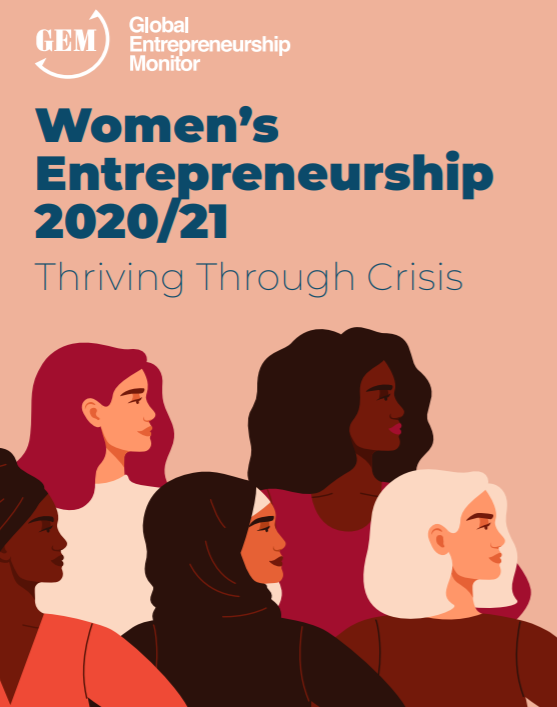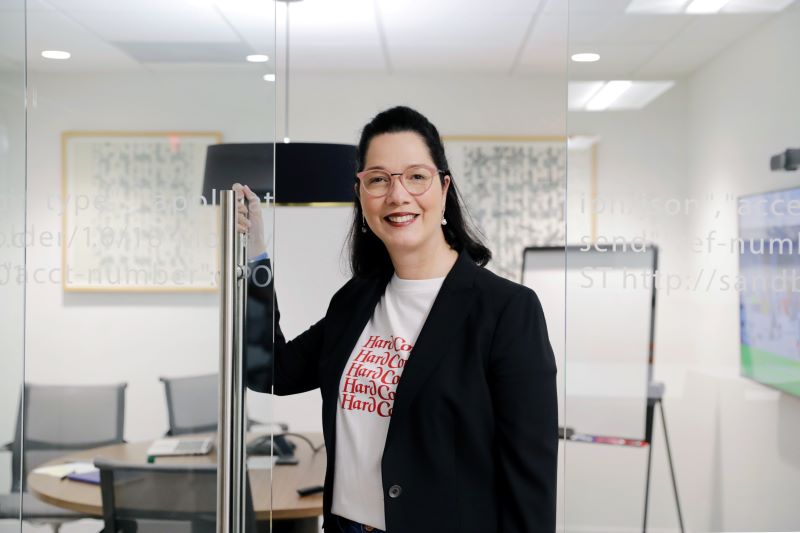Over half of women in developing countries see entrepreneurship as a path to a better future, fully double the rate in high-income countries. With 17 percent of working-age women in developing countries already engaged as entrepreneurs, another 35 percent aspire to become entrepreneurs, according to this week’s published GEM Global Women’s Report. This compares to 9 percent and 14 percent, respectively, in high-income countries. Yet women entrepreneurs in developing countries lag behind men in their own countries and women in higher-income countries in their ability to transform their aspirations into resilient, growing businesses. These disparities underscore why unlocking the growth potential of women entrepreneurs is so critical to empowering women economically, boosting economic growth, and creating more equitable societies in the developing world.
COVID-19 pandemic impact on women entrepreneurs
At no time has this challenge been more clear. During the COVID-19 pandemic, female entrepreneurs have suffered from compounding challenges: on the business side from supply-chain disruptions and evaporating markets and finance, and on the personal side from increased care burdens and domestic volatility. The new GEM Global Women’s Report illuminates some of the reasons why female entrepreneurs have been hit so hard. Women founders in low-income countries tend to start much smaller businesses, focus on local markets, and have lower growth intentions. On average, they are younger, poorer, and less educated than entrepreneurs in other parts of the world. Over 60% are under the age of 35 and over 40% are in the lowest third of household income. Against this background, it is not surprising to note the low participation of women in the fastest-growing sectors, especially technology industries, where investor activity is high and return on- investment is even higher. Importantly, women business owners are more likely to employ other women, so when they falter the ripple effects are substantial.
At the same time, we also see ambition, resilience, and hope in our research and activities supporting women entrepreneurs. In low and middle-income countries, female entrepreneurs are as likely as male entrepreneurs to see new business opportunities in their markets and to offer innovative products or services in their business operations. Across the developing world, women entrepreneurs are developing intelligent solutions to help solve problems in their communities and drive economic and social change. From smart water treatment technologies for households in Bangladesh, to access online tutoring to boost mathematics skills of schoolgirls and boys in Pakistan, and coding classes for women and girls in West Africa, women entrepreneurs are creating sustainable businesses that improve lives.

Regional trends of women entrepreneurship
The research also shows important regional disparities. Africa shows some of the highest rates of female entrepreneurship – in some cases like Angola and Togo, substantially higher than male entrepreneurship. The Middle East on the other hand has some of the lowest rates, with no more than 5% of women in Iraq and Morocco being entrepreneurs. The Latin America & Caribbean region not only has some of the highest rates of women’s participation in entrepreneurship, but they also have remarkable patterns of high-growth activity and participation in typically male-dominated sectors like manufacturing and transportation. In East and Central Asia, more women entrepreneurs employ others, particularly in the 1-5 employee range.
Opportunites to boost women economic development
How can we ensure that these women are not overlooked in policy-making and programming in support of women business owners and economic development? Our research and work around developing countries suggest four important opportunities.
First, focus on supporting high-growth women entrepreneurs. There is a slow shift in the narrative about women’s entrepreneurship, from encouraging a high number of startups to focusing on higher-growth activities. It is time to zoom in on how we can best support female entrepreneurs who are starting and leading high-growth companies who can do more to innovate, create jobs and deliver solutions to their markets.
Second, address policy constraints alongside support programs for women entrepreneurs. Boosting women’s entrepreneurship and economic empowerment requires systemic solutions, at scale. To tackle these challenges, support programs should use an eco-systems approach; linking policy, legal, and regulatory reforms with public and private investments to expand access to capital, markets, networks, and information.
Third, support women business owners in male-dominated sectors. Gender disparity in traditionally male-dominated and higher growth sectors is significant, shutting women out of higher growth opportunities. The shortage of women in early-stage ICT activity, for example, is troubling given that the majority of global venture capital funding is directed towards this sector and the essential role technological advancement will play in developing countries. Promoting training, incubation, and acceleration of women-led firms in such non-traditional sectors will be critical for creating more high growth and resilient women-led firms.
Finally, encourage more women investors and track results. Women investors are more likely to invest in women entrepreneurs. Promoting more women in the financing, whether in accelerators and incubators, venture capital and private equity funds or banks, will make a difference for women entrepreneurs in emerging markets. And tracking the results of how much financing is going towards women entrepreneurs is critical to establishing accountability and opportunities to do better.
Women entrepreneurs are key to inclusive economic growth in developing economies, but the pandemic has set them back significantly. If we seek greater economic growth, women’s economic empowerment, and more equitable societies, we need to do more to support and invest in women entrepreneurs.
About the Authors
Amanda Elam is a Global Entrepreneurship Monitor (GEM) researcher, Research Fellow at Babson College’s Diana International Research Institute, and the lead author of the GEM 2020/2021 Women’s Entrepreneurship Report.
Wendy Teleki is the head of the Women Entrepreneurs Finance Initiative (We-Fi), a partnership housed in the World Bank Group that mobilizes financing and non-financial support for women-led/owned businesses in developing countries.

